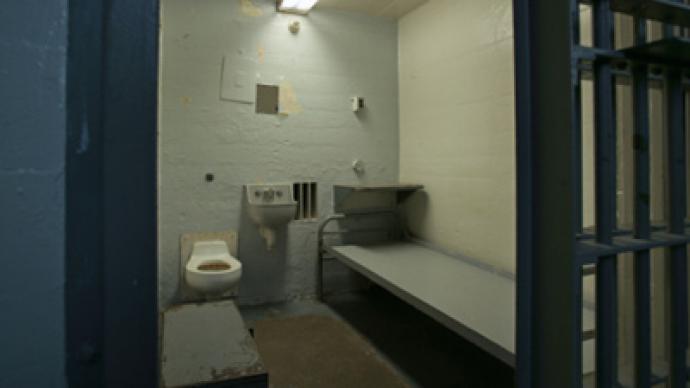Jailing Americans becomes a profitable business

The privatization of America’s prison system is well on its way to complete.
Corrections Corporation of America, the largest operator of for-profit prisons in the US, is appealing to 48 states across the country with an offer to buy out their detention facilities.The Huffington Post has obtained a letter sent out by Corrections Corporation of America Chief Corrections Officer Harley G. Lappin, in which he explains to state officials across the country the benefits of being bought out. According to Lappin, the CCA has earmarked $250 million for purchasing and managing government-owned corrections facilities, and describes the effort as an “opportunity for federal, state or local government that are considering the benefits of partnership corrections.”Founded in the early 1980s, the CCA currently manages over 60 correctional facilities across the US. With profits skyrocketing for the private company in recent years — while states are continuously stuck the red — they are insisting to these governments that selling off their cells would be beneficial to both.The CCA says that by selling off prisons, state governments can remediate the “challenging corrections budgets.” While it could come as a saving grace for taxpayers, it also conjured up questions over the motives of a for-profit corporation that makes bank off of putting men and women behind bars.While seeing their revenues increase quintuple over the last 20 years, the CCA has used those profits for more than just maintaining prisons. For one thing, they’ve forked over a fair share on lobbying Congress. While netting $133 million in income between 2006 and 2008, the CCA spent nearly $3 million lobbying; during that decade, the number of dollars spent in Washington amounted to around $17.6 million.And what were they asking for? Stricter laws that will see to it that their prison cells are more easily stocked.Corrections Corporation of America officers have been linked to the American Legislative Exchange Council, or ALEC, which has in turn lobbied for increased sentencing for inmates convicted of non-violent crimes across the country and helped pass the controversial immigration law in Arizona. Corrections Corp. themselves have lobbied for Arizona's Senate Bill 1070, and the reasoning is simple: an more stringent immigrant laws means more arrests and, thus, more jam-packed for-profit prisons.In 2009 reports obtained by National Public Radio, the CCA wrote that they expected “a significant portion of our revenues" from the Immigration and Customs Enforcement agency. According to Bloomberg BusinessWeek, the Immigration and Customs Enforcement pays around $90 every day for each detainee that their work helps land behind bars."It becomes a self-fulfilling prophecy," Shakyra Diaz, policy director of the American Civil Liberties Union of Ohio, tells HuffPo. "In order to have it at 90 percent, you need to be able to make criminals to fill it at 90 percent." Diaz can relate better than most — Ohio sold off a prison to the CCA last year after learning that they stood to save $3 million each year through the transaction. Other Buckeye State institutions have since followed suit, and one prison put itself on the market last year only for the CCA to swoop it up for $72.7 million.Of course, that doesn’t mean that the 48 states the CCA is appealing to right now have immigration laws that will ensure that the prisons will stay packed. That’s where the Corrections Corp. notes an eligibility factor for facilities that might be interested in selling. In order to be considered for purchase, the prisons approached by the CCA must be able to house no fewer than 1,000 inmates, while also guaranteeing that the facility will stay at a minimum of 90 percent of capacity during the length of their contract.It’s the privatization of America’s prison system and with it comes an almost guaranteed promise of putting more citizens behind bars. As states fall on hard times, an offer of millions might seem like an easy sell to many, as evident by the list of facilities that have already followed through with the decision. In the end though, the payoff that goes to a billion-dollar private business comes at a cost to civil liberties of the rest of America, as citizens become less of a voice of the state and more a profitable hot commodity.














